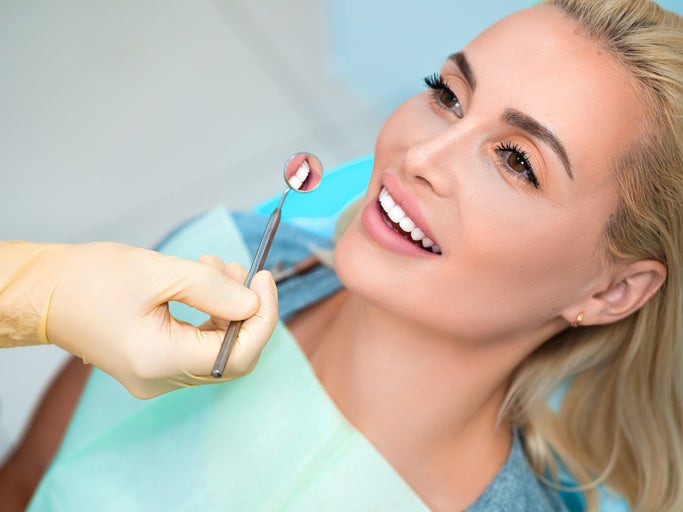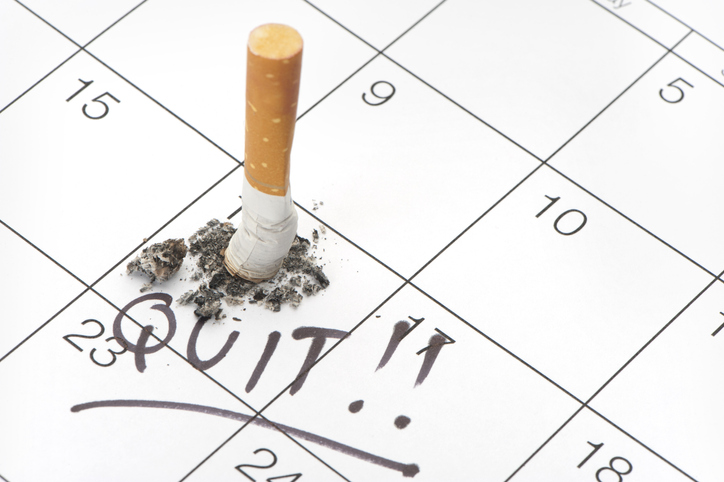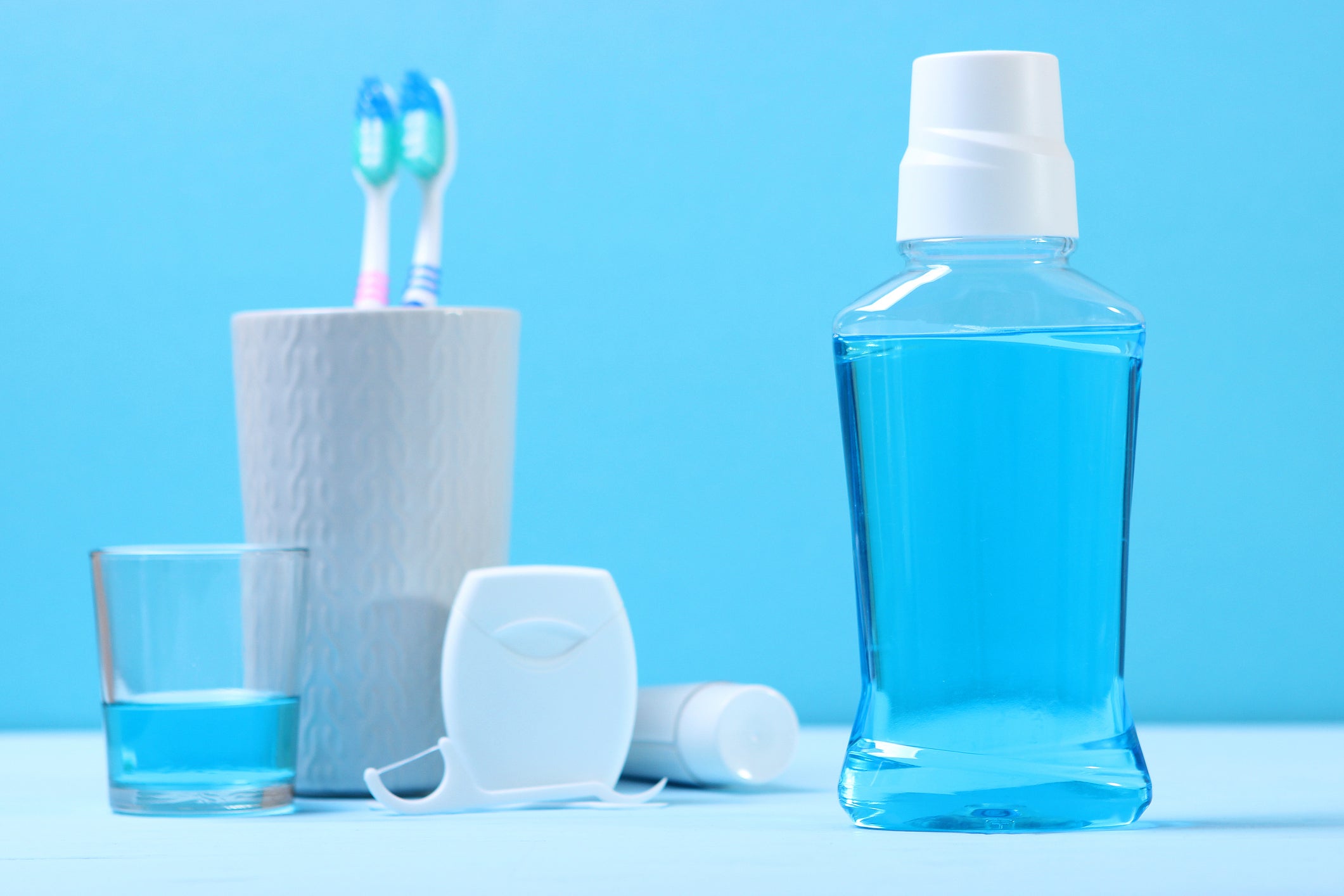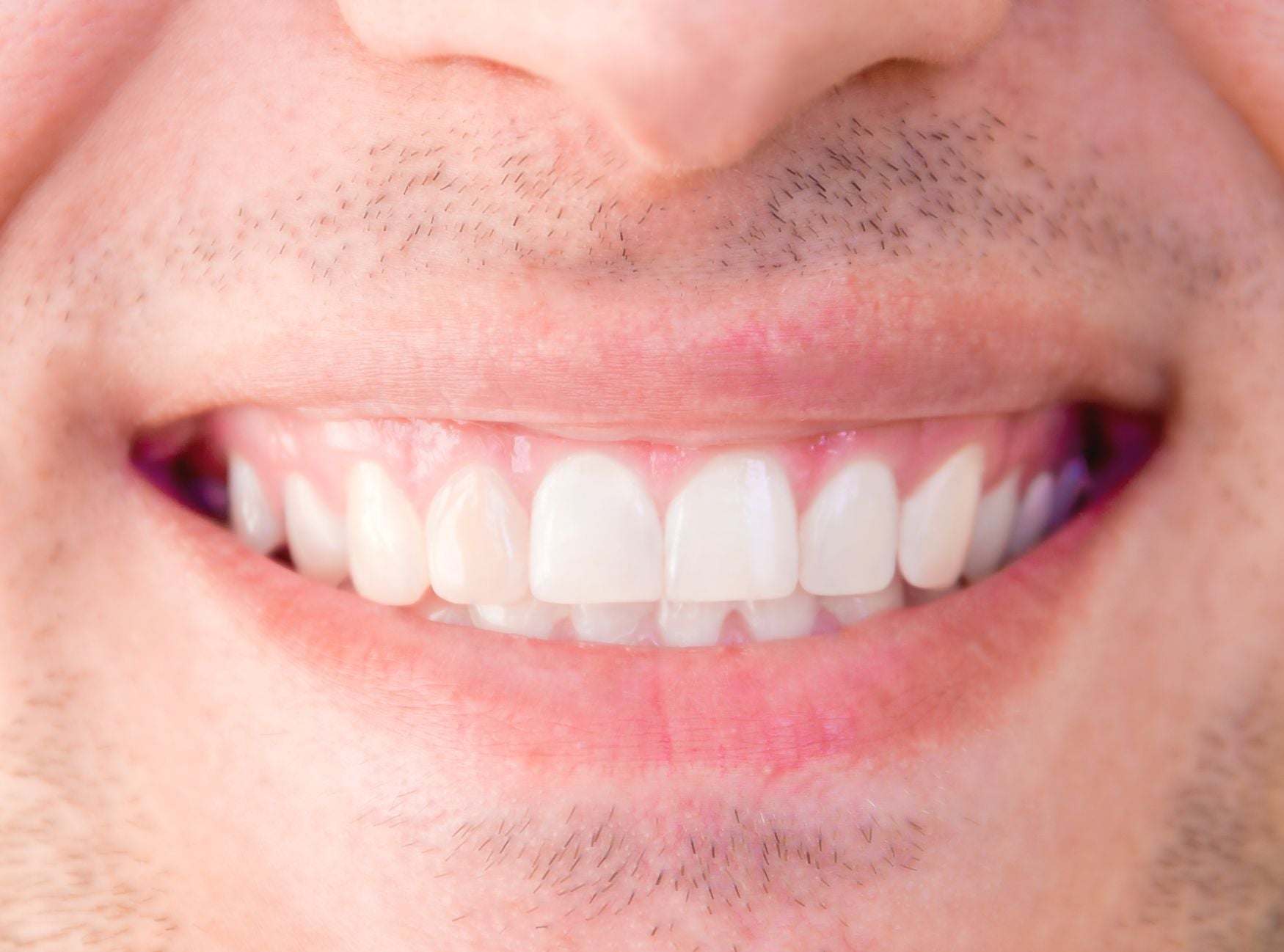-
The Connection between Diabetes and Oral Health

Diabetes affects how your body processes glucose (sugar), leading to high blood glucose levels and a host of related health problems. Diabetes can affect many areas of the body, including the eyes, kidneys, heart, and nervous system. Did you know there’s also a link between diabetes and oral health? Learn more about this connection and what you can do to promote a healthy smile.
Diabetes and Your Mouth
If left untreated, diabetes can take a toll on your oral health. Here are the potential problems you face:
- Periodontal disease: Diabetes reduces your body’s ability to fight the bacteria invading your gums, increasing the risk for periodontal disease (gum disease). This infection causes swollen, tender gums and may eventually lead to tooth loss. As with all infections, periodontal disease can cause blood sugar levels to rise. This, in turn, makes diabetes harder to control, and the vicious cycle continues.
- Tooth loss: Because advanced gum disease eventually causes your teeth to loosen and fall out, diabetes patients are more likely to face this oral health problem. In fact, one in five cases of total tooth loss is linked to diabetes.
- Cavities: Oral bacteria feed on the starches and sugars found in the food and beverages you ingest. Uncontrolled diabetes raises the glucose level of your saliva, giving bacteria more sugar on which to feed. This leads to more plaque buildup, which attacks your teeth and increases the risk of cavities.
- Dry mouth: Excessive thirst is a common symptom of high blood sugar. This is caused by the lack of saliva flow, a condition known as dry mouth. Without saliva to keep your mouth moist, your risk for cavities and periodontal disease increases.
- Thrush: This fungal infection may develop in your mouth as a result of low saliva flow and increased glucose levels.
How to Improve Oral Health if You Have Diabetes
Proper dental care is needed to prevent diabetes from damaging your teeth and gums. In addition to controlling your blood sugar levels with diet, exercise, and medication, we recommend following this dental care routine to improve your oral health:
- Brush your teeth twice a day.
- Floss once a day.
- Tell your dentist you have diabetes and report any symptoms you notice, such as dry mouth, loose teeth, or infections.
- Watch for early signs of gum disease, including redness, swelling, and bleeding gums.
- If you wear dentures, Invisalign, a retainer, or a mouth guard, brush this oral appliance daily.
- Avoid smoking. Tobacco use only worsens gum disease and other oral health problems.
- Visit the dentist at least twice a year to manage the oral health risks of diabetes.
At Park 56 Dental, we can help you prevent cavities, gum disease, tooth loss, and other oral health problems with routine teeth cleaning. We also offer restoration services to help you smile with confidence once more. To schedule an appointment with our NYC dentist, please contact us online or call (212) 826-2322.
-
How Smoking Affects Your Teeth and Oral Health

Do you or a loved one smoke cigarettes? If you’re looking for one more reason to quit, consider that tobacco use in any form raises your risk for oral health problems. Here are the issues associated with smoking cigarettes, cigars, and pipes or using smokeless tobacco:
- Gum disease: Also called periodontal disease, gum disease is an infection that causes red, swollen, tender, and bleeding gums. Smoking increases your risk of gum disease by weakening your immune system, which makes your body less capable of fighting off infection. In fact, smokers are twice as likely as nonsmokers to contract gum disease. The greater your tobacco use, the higher your risk.
- Tooth loss: As gum disease progresses, it eventually affects the underlying bone structure that anchors your teeth to your jaw. If the bone and tissue that hold your teeth in place break down, your teeth may loosen and need to be extracted.
- Plaque and tartar buildup: The chemicals in tobacco products decrease saliva flow, making it easier for bacteria to cling to your teeth and gums. If not removed daily with diligent brushing and flossing, plaque hardens into tartar, a cavity-causing, tooth-staining substance that can only be removed with professional cleaning.
- Cancer: Besides lung cancer, smoking can also cause cancer of the lips, mouth, throat, tonsils, and esophagus. The risk is six times higher among smokers. In fact, 90 percent of patients diagnosed with these oral cancers are tobacco users.
- Delayed healing: The reduced immune function caused by smoking impairs blood flow to the gums, making it harder for your mouth to heal following a tooth extraction, periodontal treatment, or oral surgery.
- Tooth discoloration: Stained, yellow teeth are a hallmark of smoking. Whitening products can sometimes counteract the effects temporarily, but the stains quickly return.
- Bad breath: Smoking leaves a stale film on your teeth and gums, resulting in “smoker’s breath.” You may be able to mask the odor with a mint for a short time, but the smell will return before long.
- Inflammation: Smoking triggers an immune response that increases the level of inflammatory markers in the bloodstream. This may increase inflammation throughout the body, including at the salivary gland openings and on the roof of your mouth.
- Darkened gums: Smoker’s melanosis, or a darkening of the gum tissue, is one response to irritating tobacco smoke. Up to 22 percent of cigarette and pipe smokers develop this oral change. There is no treatment, but the gums typically return to normal within six to 36 months of quitting.
Clearly, if you want to improve your oral health, kicking the tobacco habit is a great place to start. Your dentist can recommend useful products to help you quit, such as nicotine gum and patches. You can also pursue treatments to reverse the damage caused by smoking. For more useful tips, or to schedule an appointment with our NYC dentist, please contact Park 56 Dental online or call us at (212) 826-2322.
-
Should You Use Mouthwash?

When you picture the basics of good oral care, you probably think of brushing and flossing. What about using mouthwash? Many people include this optional step in their daily teeth-cleaning routine. Should you join them?
Benefits of Mouthwash
Here are the top reasons to use mouthwash daily.
- Freshen your breath: Antiseptic mouthwash kills bacteria that cause bad breath while leaving a minty flavor behind. If you struggle with chronic bad breath, be aware that using mouthwash won’t cure the underlying cause. Speak with your dentist about tips to combat the problem at the source.
- Remove biofilm: Your teeth comprise only 25 percent of the total surface area in your mouth. Even after you brush and floss, a thin, slimy layer of bacteria may linger on your tongue, cheeks, and the roof of your mouth. Rinsing with mouthwash minimizes this biofilm, leaving your mouth cleaner than brushing and flossing alone.
- Prevent plaque buildup: Some mouthwash products are formulated to help prevent plaque from building up between your teeth and along the gum line. This sticky substance is teeming with bacteria, so preventing it from forming is the best defense you have against cavities and gum disease.
- Strengthen tooth enamel: Mouthwash with fluoride additives can help make your teeth stronger and more plaque-resistant.
- Prevent staining: Hydrogen peroxide mouthwash has minor whitening capabilities when used as directed. Most importantly, it prevents new stains from setting in, making it an effective smile maintenance product following professional teeth whitening.
How to Use Mouthwash
To maximize the benefits of mouthwash, make sure you use it correctly. Follow the directions on the bottle with these additional tips in mind:
- Brush and floss first: Mouthwash isn’t a substitute for brushing and flossing. Perform these steps first to remove food particles and plaque.
- Use the proper amount: Pour mouthwash into the plastic cup that doubles as a lid, using the amount recommended on the bottle. This is typically between 3 and 5 teaspoons.
- Time yourself: Empty the cup into your mouth and begin swishing it between your teeth. Watch the clock or count in your head to the recommended time, which is usually 30 to 60 seconds. As you do, rinse the cup and place it back on the bottle.
- Spit: At the end of the allotted time, spit the mouthwash into the sink. Avoid swallowing.
- Don’t rinse: Mouthwash continues to work after you spit it out, so to avoid diluting its cleaning and tooth-strengthening benefits, don’t rinse with water after using mouthwash. Also, avoid eating or drinking for 30 minutes or as recommended on the bottle.
Need help selecting the ideal mouthwash for your needs? Speak with the expert team at Park 56 Dental. Besides informing your at-home oral care routine, we also offer preventative and restorative services to keep your smile looking healthy and bright. Call us today at (212) 826-2322 or contact us online for more tips or to schedule an appointment at our NYC office.
-
Traditional Braces vs. Invisalign

Are you looking to improve your smile with straighter teeth? You have two primary options—traditional braces and Invisalign. Compare these teeth-straightening methods to help you decide which one is the best choice for you or your child.
Traditional Braces
When most people think of braces, they picture the metal brackets and wires of traditional braces. These are glued to your teeth and cannot be removed. Here’s what to expect from this option:
- Aesthetics: While they never fully disappear, traditional braces are available with enamel-colored components to make them less noticeable. Teens may also enjoy making a statement with brightly colored brackets and wires.
- Treatment time: The average patient needs braces for two years, though this varies greatly depending on the individual’s needs.
- Cleaning: Brushing and flossing with braces is more difficult and time-consuming, leading to an increased risk of discoloration and cavities.
- Comfort: Brackets and wires are notorious for causing lip and tongue sores.
- Effectiveness: Traditional braces are often the best choice for complex issues, such as correcting back bite issues, rotating canines or premolars, and moving teeth vertically.
- Lifestyle: Patients who wear traditional braces must follow certain dietary limitations to avoid damaging the brackets and wires with sticky, chewy, or hard food. Traditional braces are also not ideal for anyone who plays rough contact sports.
Invisalign
The premise behind Invisalign is to provide a more discrete teeth-straightening option. The dentist uses an impression of your mouth to produce BPA-free plastic aligners, which you wear for two weeks before moving to the next set. Here are some qualities of Invisalign to consider:
- Aesthetics: Invisalign aligners are virtually invisible. Unless you tell people, it’s unlikely anyone will notice you’re wearing them.
- Treatment time: The average patient completes Invisalign treatment in six to 18 months, depending on their needs. To maintain your treatment schedule, be sure to wear your aligners for 22+ hours per day, only removing them to eat or drink anything other than water.
- Cleaning: The aligners must be brushed and rinsed daily to avoid harboring germs. While this adds an extra step to your oral care routine, the ability to brush and floss your teeth like usual is a huge benefit.
- Comfort: Invisalign has a smooth surface that feels comfortable on your cheeks, tongue, and gums.
- Effectiveness: Standard Invisalign is best for treating relatively simple issues, such as overcrowding and bite problems. However, with the addition of clear buttons, it’s possible to achieve more complex corrections.
- Lifestyle: Because you remove the aligners before eating, you don’t have to give up your favorite foods. Of course, this requires extra care to avoid losing your aligners. We also recommend brushing your teeth after every meal to prevent staining the plastic.
To learn more about traditional braces vs. Invisalign, please call Park 56 Dental at (212) 826-2322 or contact us online. We proudly offer Invisalign in NYC, the modern way to straighten your teeth and improve your smile.
RECENT POSTS
categories
- Uncategorized
- Cosmetic Dentistry
- Veneers
- Healthier Teeth
- Teeth Whitening
- Dental Health
- Video
- Dental Emergencies
- Invisalign
- Dental Implants
- Root Canal
- Sedation Dentistry
- Infographic
- Dental Crowns and Bridges
- Dental Anxiety
- Gum Disease
- COVID-19
- Bad Breath
- New York Dentist
- Cut out sugar
- General Dentistry
- Oral Health
- Oral Cancer
- Dry Mouth
- Gum Health
- Toothache
- Dental Sealants
- Cavities



